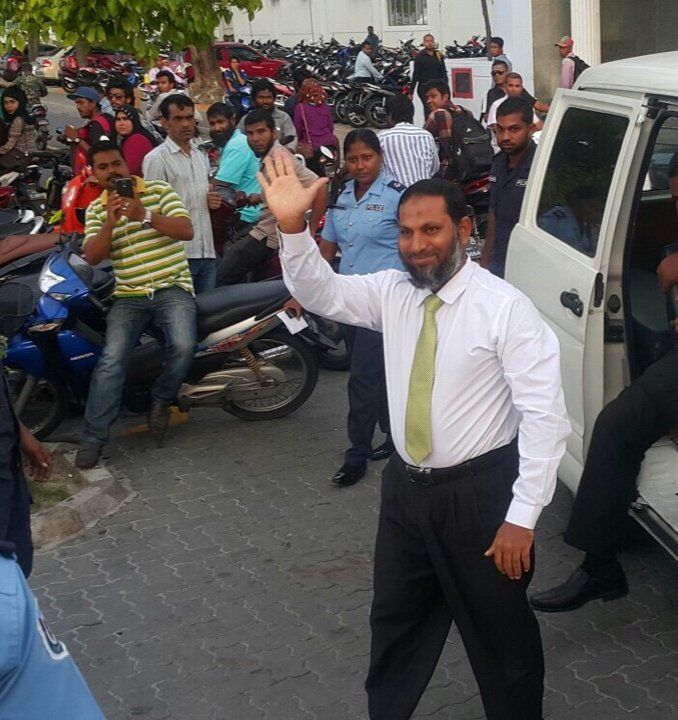Adhaalath Party leader seeks review of terror conviction
The president-elect’s spokeswoman has also urged the Supreme Court to release opposition leaders.

23 Oct 2018, 09:00
Adhaalath Party leader Sheikh Imran Abdulla has asked the Supreme Court to review his terrorism conviction.
A request has been made for the Supreme Court to review its decision to reject Imran’s appeal, his lawyer Ali Zahir tweeted Tuesday.
“The freedom of leaders of the joint parties is very important for the transition work,” the Adhaalath Party deputy leader added.
Become a member
Get full access to our archive and personalise your experience.
Already a member?
Discussion
No comments yet. Be the first to share your thoughts!
No comments yet. Be the first to join the conversation!
Join the Conversation
Sign in to share your thoughts under an alias and take part in the discussion. Independent journalism thrives on open, respectful debate — your voice matters.




